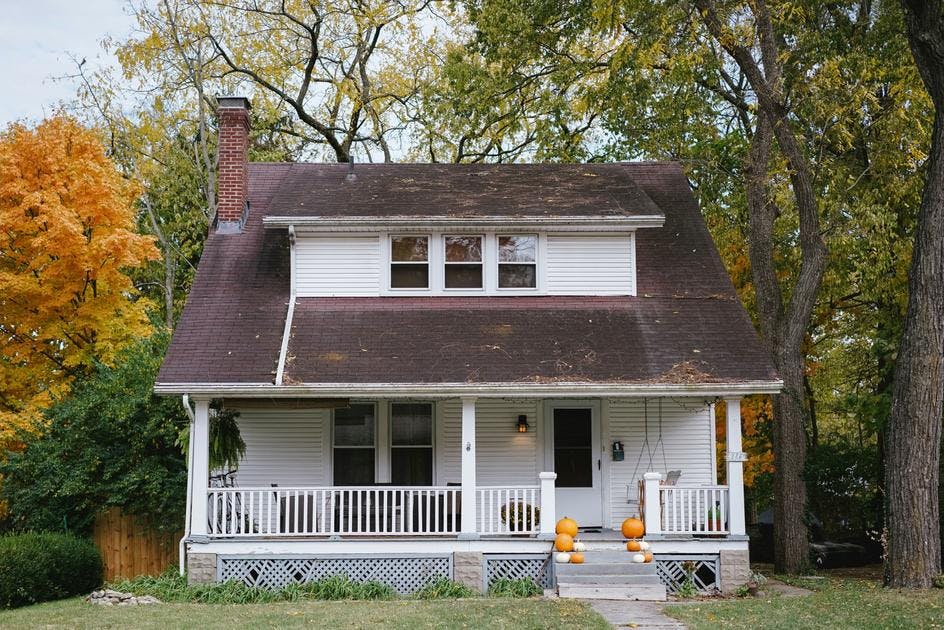
Principal Private Residence (PPR) Relief in Ireland

Summary
Everything Irish homeowners need to know about Principal Private Residence (PPR) Relief.
When it comes to selling your home in Ireland, one of the most valuable tax reliefs available is Principal Private Residence Relief (PPR relief). This relief can significantly reduce or even eliminate your Capital Gains Tax (CGT) liability, potentially saving you thousands of euros.
At Irish Tax Hub, we specialise in helping individuals and families navigate Ireland’s complex tax system. Whether you are selling your first home, managing multiple properties, or preparing for retirement, our experienced advisors ensure you don’t pay more tax than you should.
In this in-depth guide, we’ll explain everything you need to know about PPR relief in Ireland:
- What PPR relief is and why it exists
- How Capital Gains Tax applies to property sales
- Conditions for qualifying for PPR relief
- Calculating relief (with worked examples)
- Partial relief, rental periods, and apportionment rules
- Special rules for married couples and inherited property
- The 12-month “final period” exemption
- Common mistakes people make when claiming PPR relief
- How Irish Tax Hub can help you maximise relief and stay Revenue-compliant
What is Principal Private Residence Relief in Ireland?
Principal Private Residence (PPR) Relief is a Capital Gains Tax exemption that applies when you sell or dispose of your main home in Ireland.
Without this relief, you could be liable to pay 33% CGT on the gain (profit) you make from the sale. For many homeowners, PPR relief eliminates this liability entirely.
PPR relief exists to protect individuals who sell their family home from being taxed on what is generally not considered an “investment” gain, but rather a personal living arrangement.
How Capital Gains Tax (CGT) Applies to Property in Ireland
When you sell a property, CGT may apply if:
- The property has increased in value since you bought it
- You are not entitled to full reliefs or exemptions
The taxable gain is broadly calculated as:
(Sale Price – Purchase Price – Allowable Costs) × CGT Rate (33%)
Allowable costs can include:
- Stamp duty paid on purchase
- Solicitor and auctioneer fees
- Costs of improvements (not maintenance)
Use our CGT Calculator to estimate your liability before the application of PPR relief.
If the property has been your principal private residence, PPR relief may reduce or remove the taxable gain.
Conditions for Qualifying for PPR Relief
To qualify for PPR relief in Ireland:
- The property must have been your principal residence - i.e., the home where you normally live.
- You must have occupied the property as your main home during the ownership period.
- The relief applies only to the portion of the property used as your residence.
- If you let out a part (e.g., renting a room or converting into flats), only the residential portion qualifies.
- If you use part of the property exclusively for business (e.g., an office or shop), that portion does not qualify.
- If you own more than one property, only one can be your PPR at a time.
How to Calculate PPR Relief
PPR relief is based on time apportionment:
Relieved Gain = Total Gain × (Qualifying Occupation Period ÷ Total Ownership Period)
Additionally, Revenue allows the last 12 months of ownership to always qualify, even if you had moved out.
Example 1 – Full Relief
- Purchased in 2010 for €250,000
- Sold in 2024 for €400,000
- Total Gain: €150,000
- Property occupied as main home for the entire period
👉 Full PPR relief applies. No CGT payable.
Example 2 – Partial Relief (Rental Period)
- Purchased in 2010 for €250,000
- Lived in it from 2010–2017 (7 years)
- Rented out from 2017–2024 (7 years)
- Sold for €400,000 (gain €150,000)
- Ownership = 14 years
- Qualifying = 7 years + 1 year “final period” = 8 years
👉 Relieved gain = €150,000 × (8 ÷ 14) = €85,714
👉 Taxable gain = €64,286
👉 CGT @ 33% = €21,214
Special Considerations
Married Couples and Civil Partners
- If both spouses/civil partners live in the property as their main home, PPR relief applies to both, regardless of legal ownership ratios.
Inherited Property
- The property must become your main residence to qualify for PPR relief. Merely inheriting does not automatically qualify.
Non-Resident Owners
- If you live abroad but keep your Irish property, relief applies only to periods of actual occupation as your main residence.
Common Mistakes When Claiming PPR Relief
At Irish Tax Hub, we regularly correct errors such as:
- Assuming full relief applies even when part of the property was rented or used for business
- Forgetting to claim the final 12 months relief
- Misunderstanding “occupation” (e.g., leaving the house vacant does not count)
- Not keeping sufficient records of occupation, rental periods, and improvement costs
- Underreporting or overreporting allowable expenses
Any of these mistakes could cost you thousands in unnecessary tax - or trigger Revenue penalties.
How Irish Tax Hub Can Help You
Our tax experts specialise in Irish property tax, with a strong focus on Capital Gains Tax reliefs. We provide:
✅ Tailored tax advice based on your unique circumstances
✅ CGT calculations with full apportionment for mixed-use or rental periods
✅ Guidance on supporting records to satisfy Revenue queries
✅ Professional filing services to ensure your CGT return is correct and on time
✅ Strategic planning if you are considering selling property in the future
Many of our clients save five figures in tax by applying PPR relief correctly.
FAQs on PPR Relief in Ireland
Do I pay CGT when selling my family home?
Not if full PPR relief applies. If the property was your main home for the entire ownership period, the gain is fully exempt.
Can I get PPR relief on a second home?
No. Only one property at a time can be your principal residence.
Does letting a room affect relief?
Rent-a-Room relief does not generally restrict PPR relief if you remain living in the property.
What if I inherited the property?
You can qualify for PPR relief, but only if you actually live in the inherited property as your principal residence.
Do I need to file a CGT return if PPR relief makes the gain exempt?
Yes. In most cases you must still file, even if no tax is due.
Next Steps – Protect Your Property Gain
If you are planning to sell your home or an investment property in Ireland, don’t risk overpaying Capital Gains Tax. PPR relief can save you thousands - but only if applied correctly.
At Irish Tax Hub, our expert advisors will:
- Confirm if you qualify for full or partial relief
- Calculate your exact CGT liability
- File your CGT return with Revenue, correctly and on time
👉 Sign up for out CGT review service today. Irish Tax Hub - the trusted experts in Irish tax reliefs, CGT, and compliance.
This blog post is for informational purposes only and does not constitute tax, financial, or legal advice. Tax laws and regulations are subject to change and may vary based on individual circumstances. Readers are strongly encouraged to consult with a qualified tax professional or financial advisor before making decisions based on the information provided. We make no guarantee regarding the accuracy, completeness, or applicability of this content to your particular tax situation.
Found this article helpful? Like and share it with others

